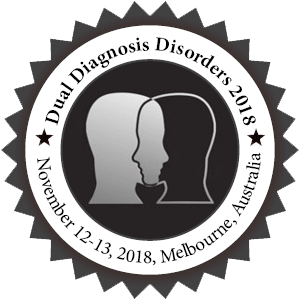
Catia Felgueiras,
Dona Estefânia Hospital, Portugal
Title: Review of treatments to PTSD and comorbid AUD
Biography
Biography: Catia Felgueiras,
Abstract
Alcohol Use Disorders (AUD) and Post Traumatic Stress Disorder (PTSD) are highly prevalent and commonly co-occur. Co-occurrence may modify and exacerbate the neuroadaptations underlying addiction, relapse, withdrawal and the emergence of medical and psychiatric complications. Thus, it is important to identify these patients and find effective intervention strategies. The treatment literature for patients with dual diagnosis of PTSD and AUD is very limited and inconclusive. A bibliographic review was done on the subject through the Pubmed and PsycInfo platforms. Some pharmacotherapies, such as Serotonin reuptake inhibitors and Naltrexone, are effective for the treatment of PTSD and AUD alone. However, no medication has proven to be effective for double diagnosis. Recent studies suggest that noradrenergic medications, such as Prazosin, Guanfacine and Atomoxetine and promising glutamate/GABA medications such as Topiramate, Memantine, Acamprosate, N-acetylcysteine and Ketamine may be useful in the treatment of comorbid PTSD with AUD. However, the safety and efficacy of these drugs need to be tested in controlled clinical trials. Some psychotherapies seem promising for the treatment of these patients, however, no studies have yet pointed to an isolated efficacy demonstrating improvements only by combination with pharmacological treatment. There also seems to be some effectiveness of other treatments such as mindfulness-based, yoga and acupuncture, However, the effectiveness is more difficult to assess. Most studies do not yet have adequate power and suffer from inadequate control groups. There is a strong need to develop and evaluate combined interventions for pharmacological and psychotherapeutic treatment.

